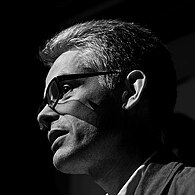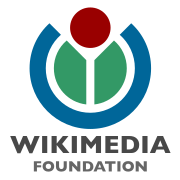WIKIMANIA
Wyobraź sobie świat, w którym każda osoba na Ziemi ma wolny dostęp do całej ludzkiej wiedzy. #wikimania2014
Watch the videos on youtube
Watch the videos on Commons (coming soon)
Watch the videos from livestream
Check out the programme!
See who else was there: Hello world!
Czym jest Wikimania?
Wikimania to coroczne oficjalne spotkanie ruchu Wikimania o charakterze konferencji, festiwalu, spotkania, warsztatów, maratonu programistycznego i uroczystości dla ponad 2000 osób zaplanowane na pięć dni sierpnia 2014, poprzedzone i zakończone wydarzeniami fringe. Zapoznacie się na nim ze wszystkimi rodzajami projektów które dotyczą wiki i treści edytowalnych, jak również ze społecznością tworzącą najbardziej znaną wiki, czyli Wikipedię!
Główne wydarzenie ma miejsce w i w okolicach Barbican Centre w Londynie w Wielkiej Brytanii. Niezależnie od tego, czy jesteś ekspertem, pasjonatem, początkującym czy po prostu wstąpiłeś z ciekawości, jesteś mile widziany!
State of the Wiki
An annual update on the Wikimedia projects
Wikipedia is a household name — in fact, it’s now one of the five most popular websites in the world, clocking over 21 billion hits every month. With over 110m pages across 287 languages, and a dozen sister projects including dictionaries, newspapers, multimedia repositories and travelguides, it's come a long way since its founding in 2001; the community has grown, the technology has developed, and the organisation has matured. However, there are still sweeping changes to come. more…
-
Jimmy Wales
Współzałożyciel Wikipedii -
Lila Tretikov
Executive Director of the Wikimedia Foundation -
Brandon Harris
Senior Designer at the Wikimedia Foundation -
Erik Möller
VP of Engineering at the Wikimedia Foundation -
Luis Villa
Deputy General Counsel at the Wikimedia Foundation
Machiny Społecznościowe
Jak społeczności internetowe mogą odblokować potencjał ludzki?
Pewnego razu "maszyny" były programowane przez programistów i używane przez uzytkowników. Sukces Internetu zmienił ten układ: teraz dostrzegamy konfiguracje użytkowników oddziałowujących na treść i na siebie wzajemnie. Linia pomiędzy obliczeniami wykonywanymi przez sztuczna inteligencję, algorytmy i skutek wkładu ludzkiego wynikającego z osobistych procesów psychologicznych i doświadczenia życiowego zamazuje się. Zamiast wytyczać granicę w takim internetowym systemie by oddzielić człowieka od części cyfrowych (tak, jak informatyka dotychczas to robiła), możemy teraz narysować linie dookoła tych aspektów traktując każdy z nich jako "machinę społecznościową", machinę, w której te dwa aspekty są splecione idealnie. <red>W kierunku ram klasyfikujących machiny społecznościowe Nigel Shadbolt, Daniel Alexander Smith, Elena Simperl, Max Van Kleek, Yang Yang, Wendy Hall, Grupa Naukowa Sieci i Internetu, Uniwersytet w Southampton, Wielka Brytania</ref> Oczywiście, że Wikipedia jest jednym z nich, a co z innymi? Jak stworzyć takie systemy od zera i dla jakich celów? więcej...
-
Sir Nigel Shadbolt
Professor of Artificial Intelligence, Chairman Open Data Institute -
Yaneer Bar-Yam
President of The New England Complex Systems Institute -
Raph Koster
Virtual Community Designer -
Marc-André Pelletier
Operations Engineer (Tool Labs) at the Wikimedia Foundation -
Salil Shetty
Secretary General Amnesty International
The Future of Education
Now that Wikipedia's done everyone's homework, what's left to teach?
To the exasperation of many teachers, Wikipedia is the first port of call for millions of students from primary school to university. Its sheer convenience is challenging standard pedagogical approaches that implicitly assume information is scarce and difficult to duplicate. What if teachers asked students to contribute to Wikipedia instead? więcej...
-
David White
Head of Technology Enhanced Learning at the University of the Arts London -
Clare Sutcliffe
CEO of Code Club -
Emma Mulqueeny
Founder of Rewired State -
Diana Strassmann
Chair of The Board of The Wiki Education Foundation
Open Data
What can we build when the sum of all human knowledge is machine readable?
Wikidata is a new project of the Wikimedia Foundation: a free, collaborative, multilingual, secondary database, collecting structured data to provide support for Wikipedia, Wikimedia Commons, the other Wikimedia projects, and well beyond that. This may become one of the best open data repositories on Earth — what can we do with it? więcej...
-
Rufus Pollock
Co-Founder of the Open Knowledge Foundation -
Lydia Pintscher
Wikidata Product Manager -
Viktor Mayer-Schönberger
Professor at the Oxford Internet Institute -
Chris Taggart
CEO of OpenCorporates -
Markus Krötzsch
Research Group Leader at TU Dresden -
Richard Stirling
International Director at the Open Data Institute
Open Scholarship
What happens when the cutting edge of human knowledge is available to all?
In 2013 alone over 500,000 pieces of scholarly research were made open access, across all disciplines — an unprecedented number. These are all citable in Wikipedia, meaning they can be integrated into the encyclopaedia, contextualised and made discoverable by anyone in the world with an internet connection. This level of accessibility of cutting edge research has never existed before in history, and the possible outcome of empowering citizen scientists and opening up academia in this way is beyond reckoning. więcej...
-
Jack Andraka
Citizen Scientist & Inventor -
Elizabeth Marincola
CEO of The Public Library of Science -
Peter Murray-Rust
Shuttleworth Fellow in Machine Readable Open Access
Democratic Media
Must all media be commercially driven?
Media performs an essential political, social, economic, and cultural function in modern democracies. In such societies, media are the principal source of political information and access to public debate, and the key to an informed, participating, self-governing citizenry. Democracy requires a media system that provides people with a wide range of opinion and analysis and debate on important issues, reflects the diversity of citizens, and promotes public accountability of the powers-that-be and the powers-that-want-to-be. There is a growing sense that the growth of the Internet has not paid the democratic dividends that it could. more…
-
Heather Ford
Co-founder of Creative Commons South Africa" -
Danny O'Brien
International Director of the Electronic Frontier Foundation -
Dan Gillmor
Author of "Mediactive" -
Bill Thompson
BBC Archives -
Carl Miller
Research Director Centre for the Analysis of Social Media at Demos -
Ryan Merkley
CEO at Creative Commons
Sponsorzy
Partnerzy
Media Partners
If you are interested in sponsoring next year's Wikimania, please contact wikimania-sponsorship@wikimedia.org
Volunteers

Wikimania was made possible by the 1000s of hours of work by 100s of volunteers












































